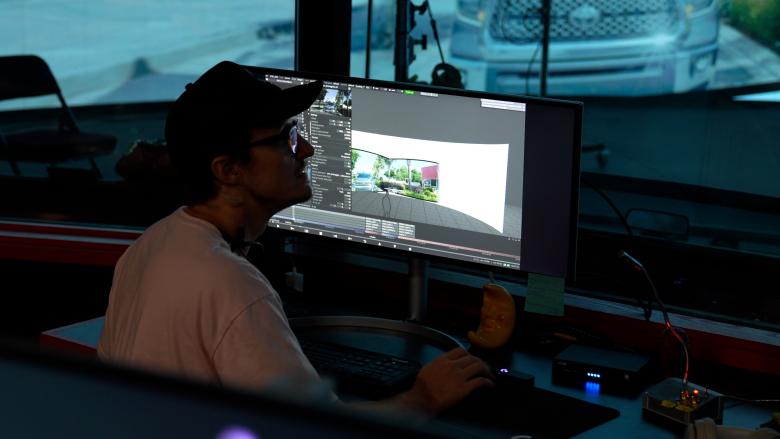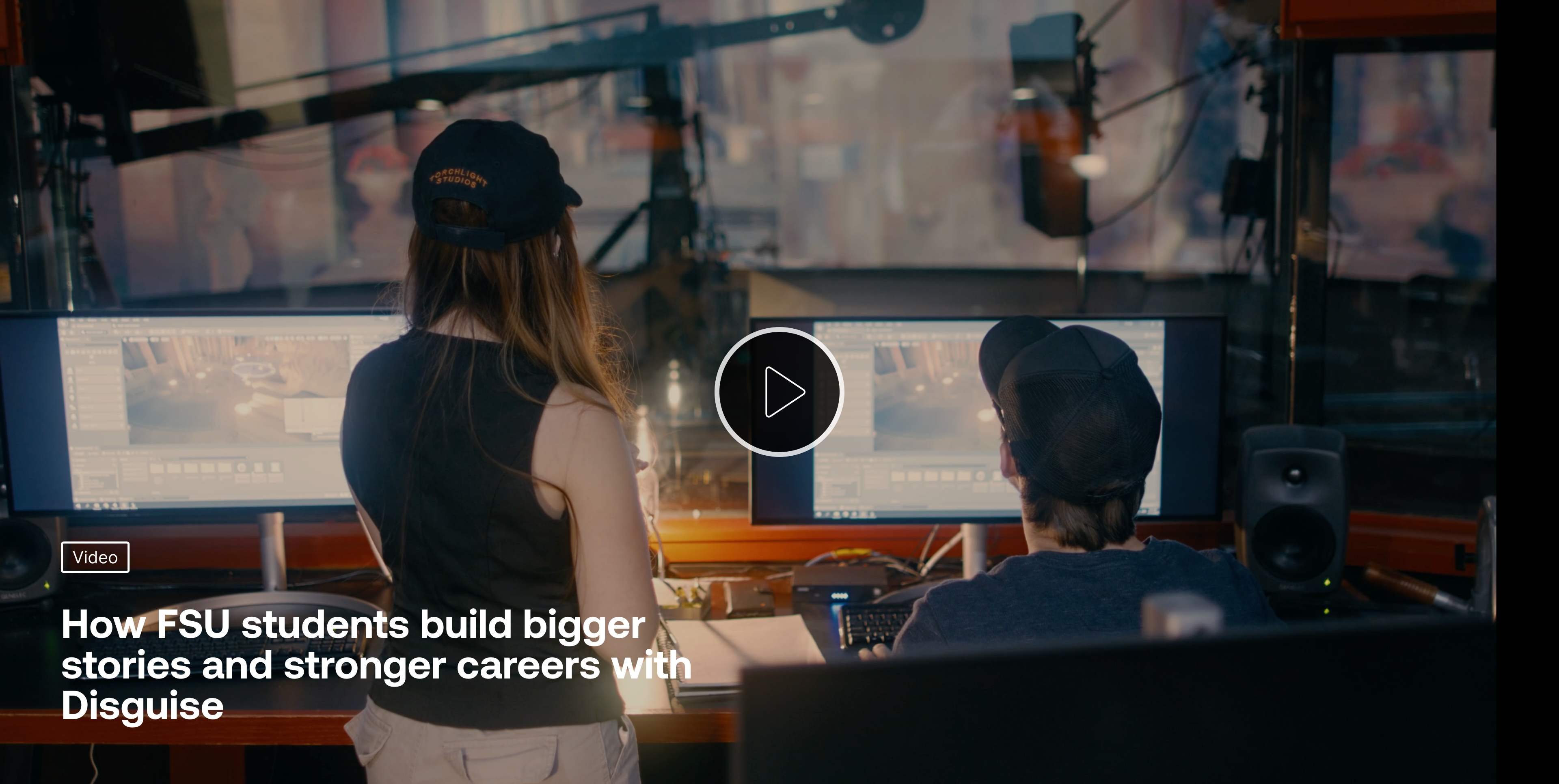How FSU students build bigger stories and stronger careers with Disguise
Services
Virtual Production
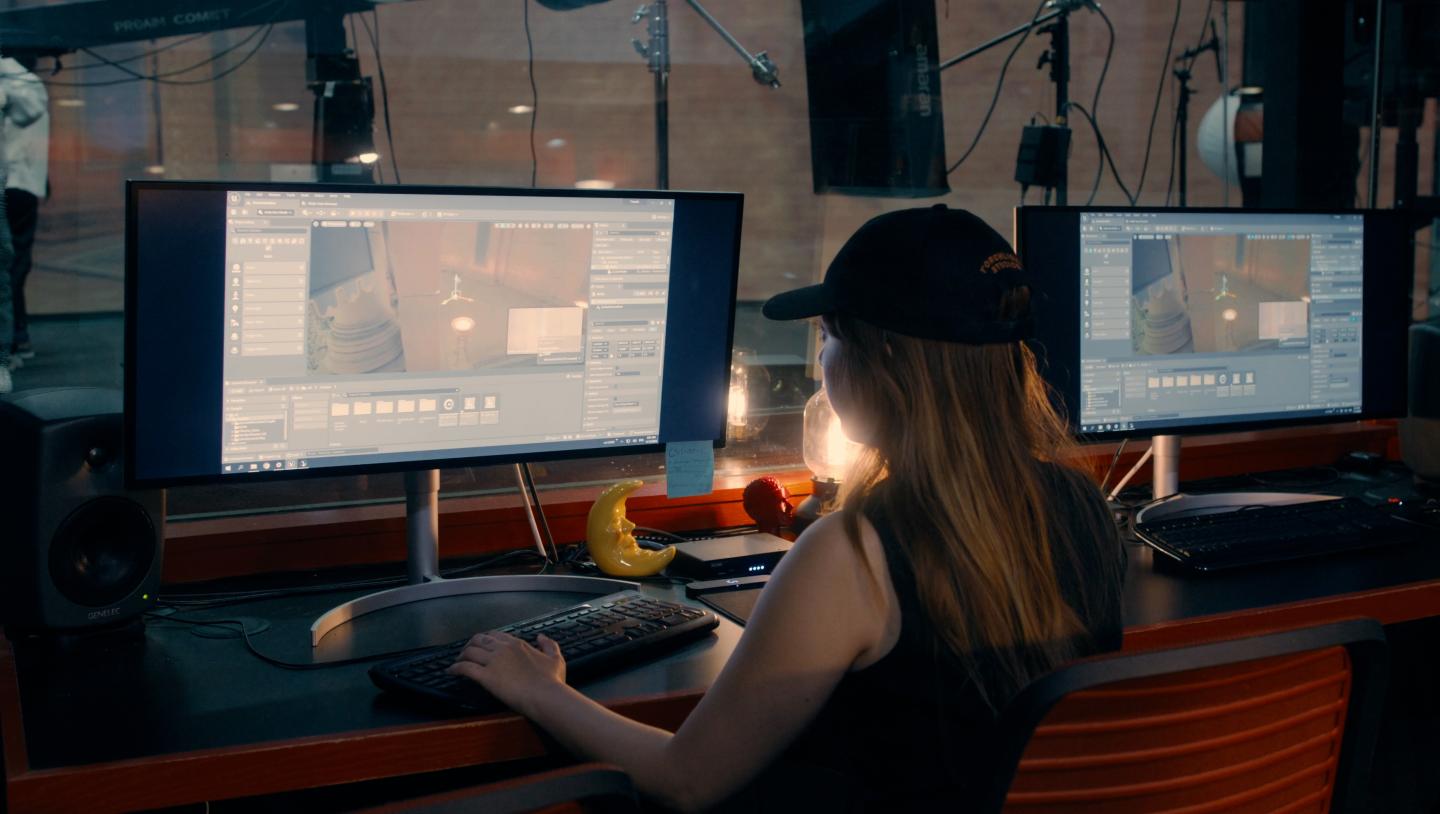
Florida State University’s College of Motion Picture Arts has been training storytellers in virtual production for years, giving students hands-on experience inside Torchlight Forge - the university’s dedicated virtual production studio. But as the technology evolved and productions became more complex, the university identified the need for a more flexible, industry-aligned workflow.
To meet that need, FSU brought in Disguise. The goal wasn’t just to upgrade their technology - it was to give students a system they could learn today, and walk confidently into the industry with tomorrow.
Watch the case study video now:
The Challenge
FSU’s original LED volume setup ran directly from Unreal Engine to the wall - a system that worked, but presented challenges. It lacked user support, limited the types of content students could use, and required custom configuration that slowed down productions.
Faculty needed a solution that was more reliable, easier to operate, and could support everything from real-time content to pre-rendered plates and 2.5D environments. Most importantly, the team needed a system that students could learn quickly, adapt across departments, and use in practical, real-world scenarios.
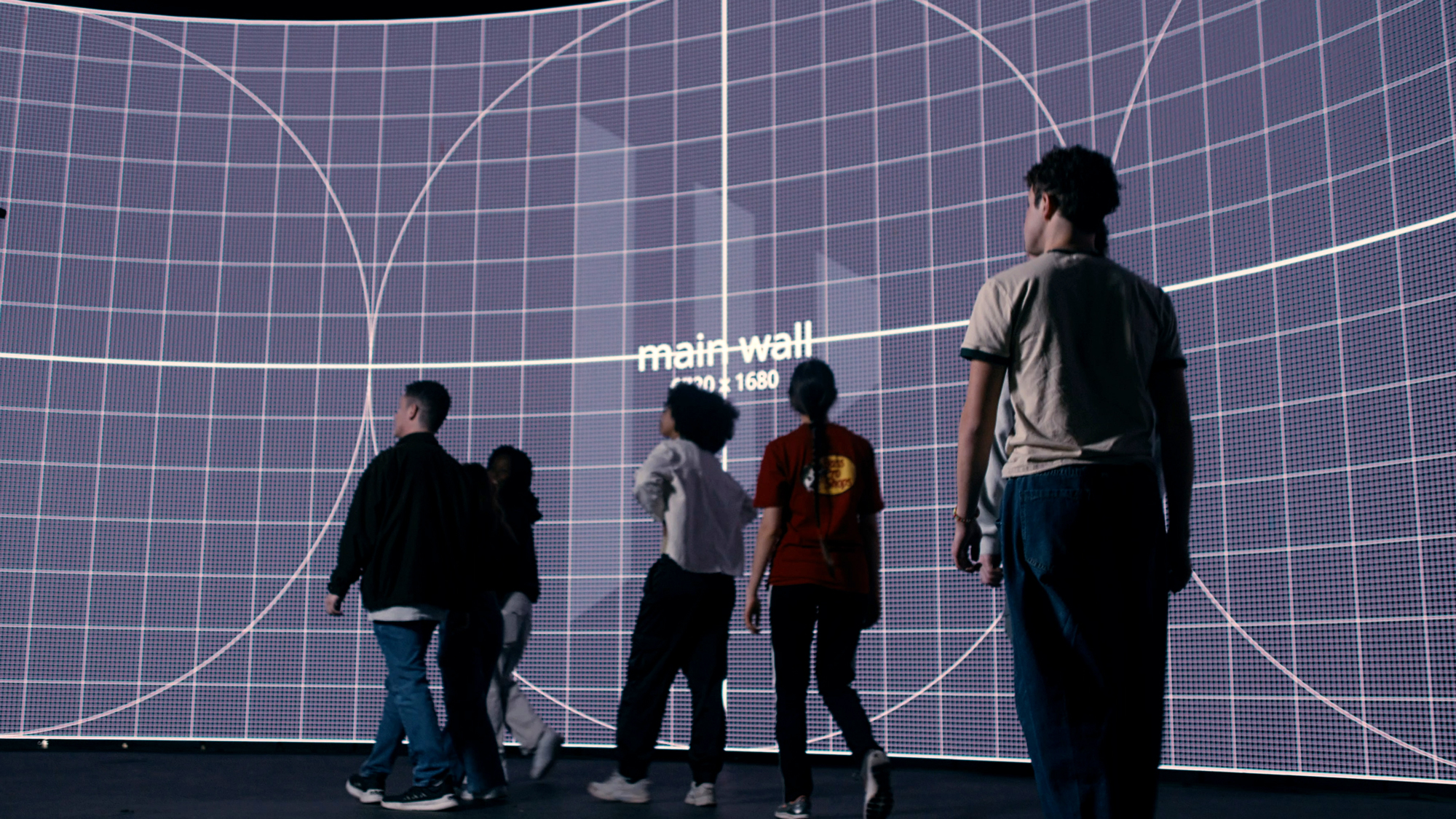
“For us, it was actually a really easy decision to make. It was less about the price tag and more about meeting the mission of our College, and that is to prepare men and women for jobs in the industry.” - Sabrina Reisinger, Assistant Dean of Torchlight Forge.
The Solution
FSU partnered with Disguise Services to install a more robust and flexible virtual production pipeline. The stage now runs on two Disguise VX 2 machines and three RX II render nodes, powering a 200-panel LED wall with stYpe camera tracking and an Evertz master clock for precise synchronization.
The upgraded system gave students and faculty the flexibility to switch between content types - whether working with Unreal Engine scenes, stitched driving plates, or motion graphics - quickly and efficiently. With the ability to preview and plan entire shoots ahead of time, students could approach productions with greater clarity, while faculty were able to guide them through workflows that reflect industry practices. Disguise Services complemented the integration with on-site training and ongoing support to help both instructors and students build confidence using the new tools quickly.
This new setup opened up broader creative and technical opportunities for students and faculty alike. One project, ‘Bookworm’, a student-directed short film and part of the MFA program, used the LED volume to stage an emotional car scene between a mother and son. Using pre-recorded driving plates on the LED wall, the students were able to create a cinematic sequence that wouldn’t have been feasible with traditional equipment or schedule constraints.
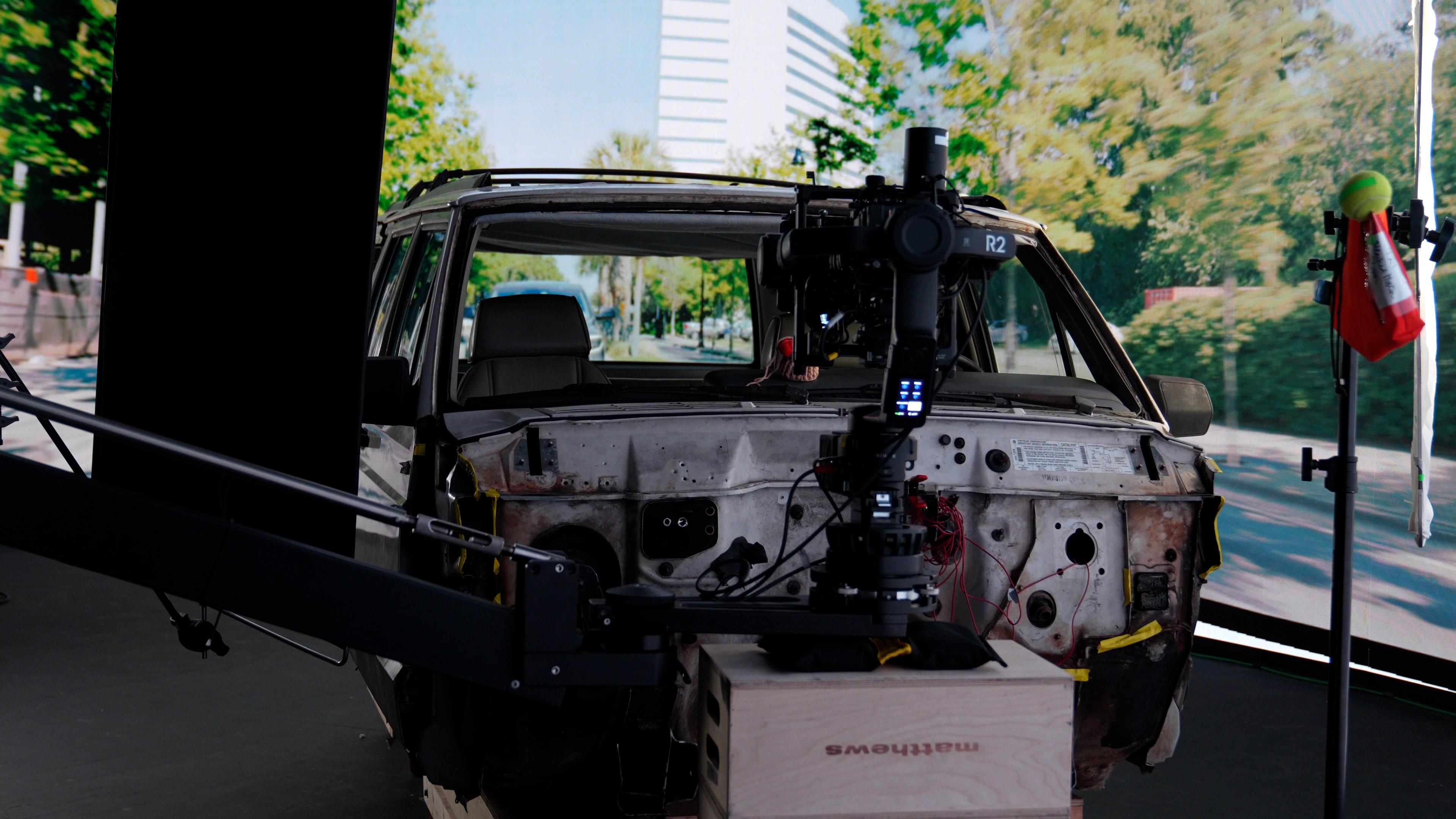
In another production design–driven capstone project, students brought the mythological world of Mount Olympus to life, crafting stylised environments in Unreal Engine and using virtual lighting and scenic elements to immerse both cast and crew in a fully digital space.
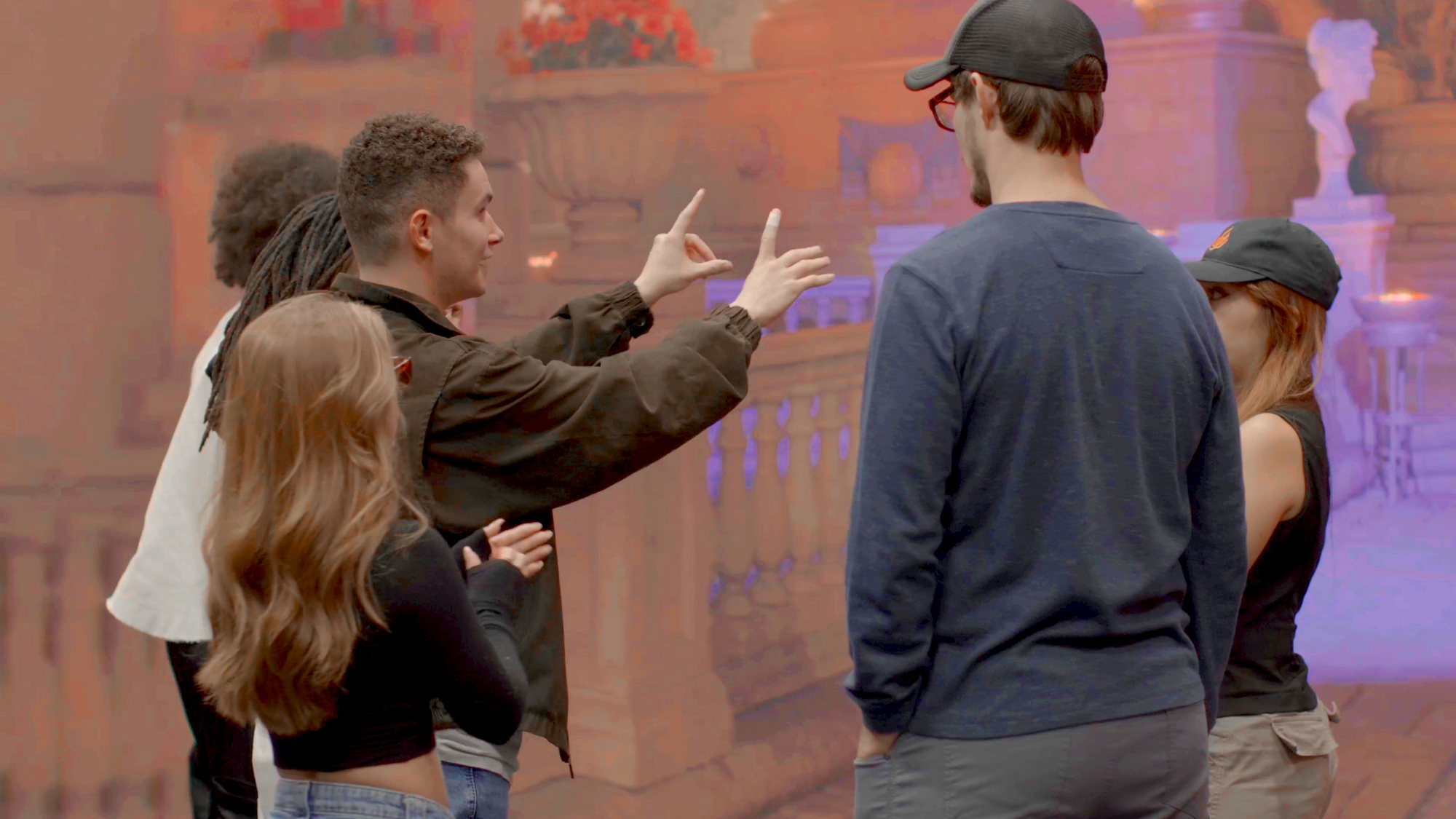
In a nod to early cinema, a team of BFA students created a German Expressionist-inspired short film, ‘Want’, building a high-contrast world within the volume. Drawing from illustration and theatre, they used dramatic lighting, physical references, and careful camera blocking to replicate the visual language of the 1920s while working entirely in a real-time environment, using the Disguise 2.5D workflow.
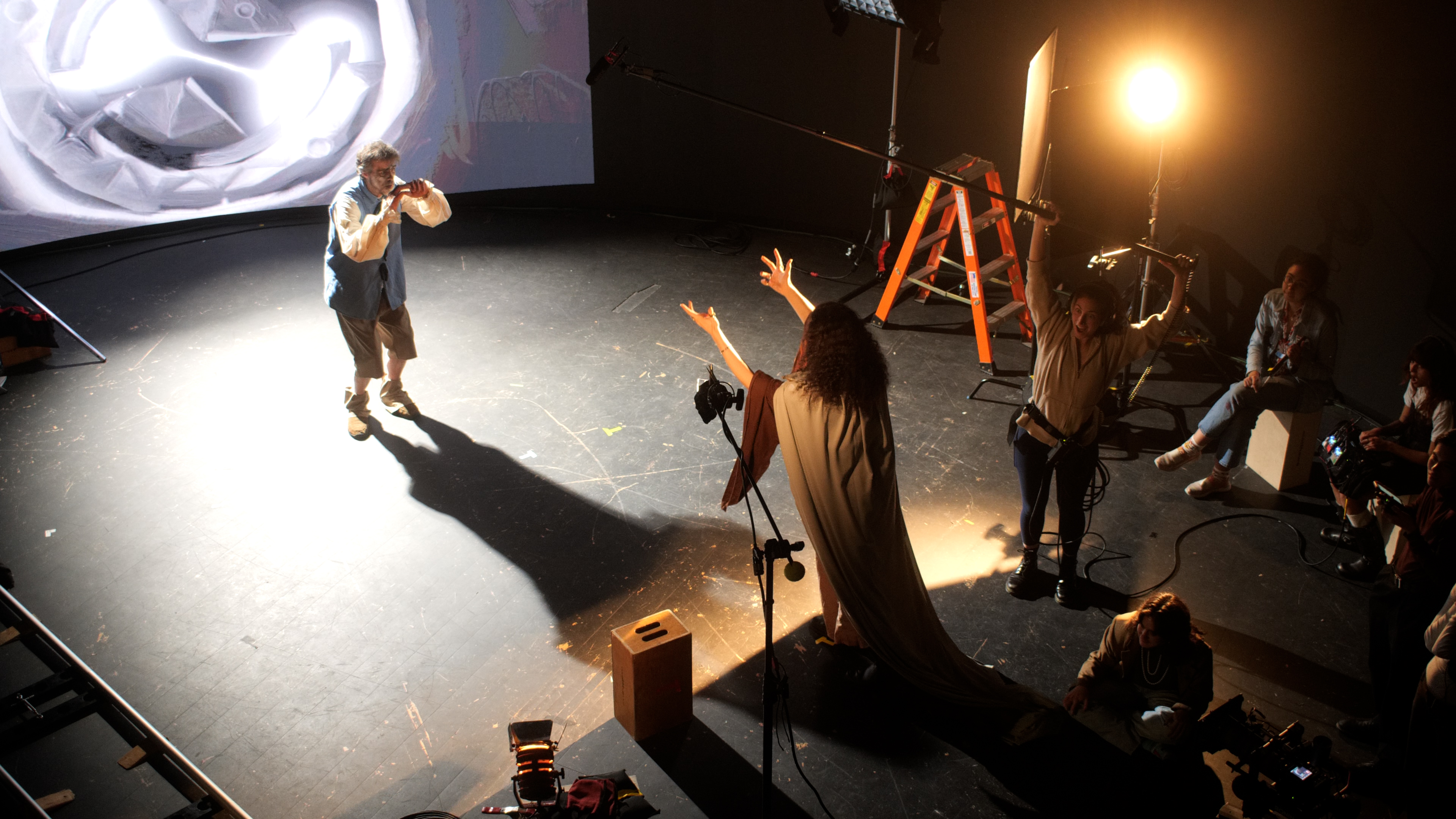
"Virtual production is kind of the ultimate cocktail of being able to do whatever you want but also having to be really intentional about what you're doing. And so in that way, I think it's perfect for film school." - Max Lawson, Cinematography specialist student
Meanwhile, the ‘Othello Project’, a faculty-led proof-of-concept film, gave students hands-on experience in photogrammetry by scanning a Sarasota historic building and transforming it into a usable digital set within Unreal Engine. The project served as a technical and educational experiment in blending physical location data with virtual storytelling tools, challenging students to think critically about lighting, texture, and environment integration.
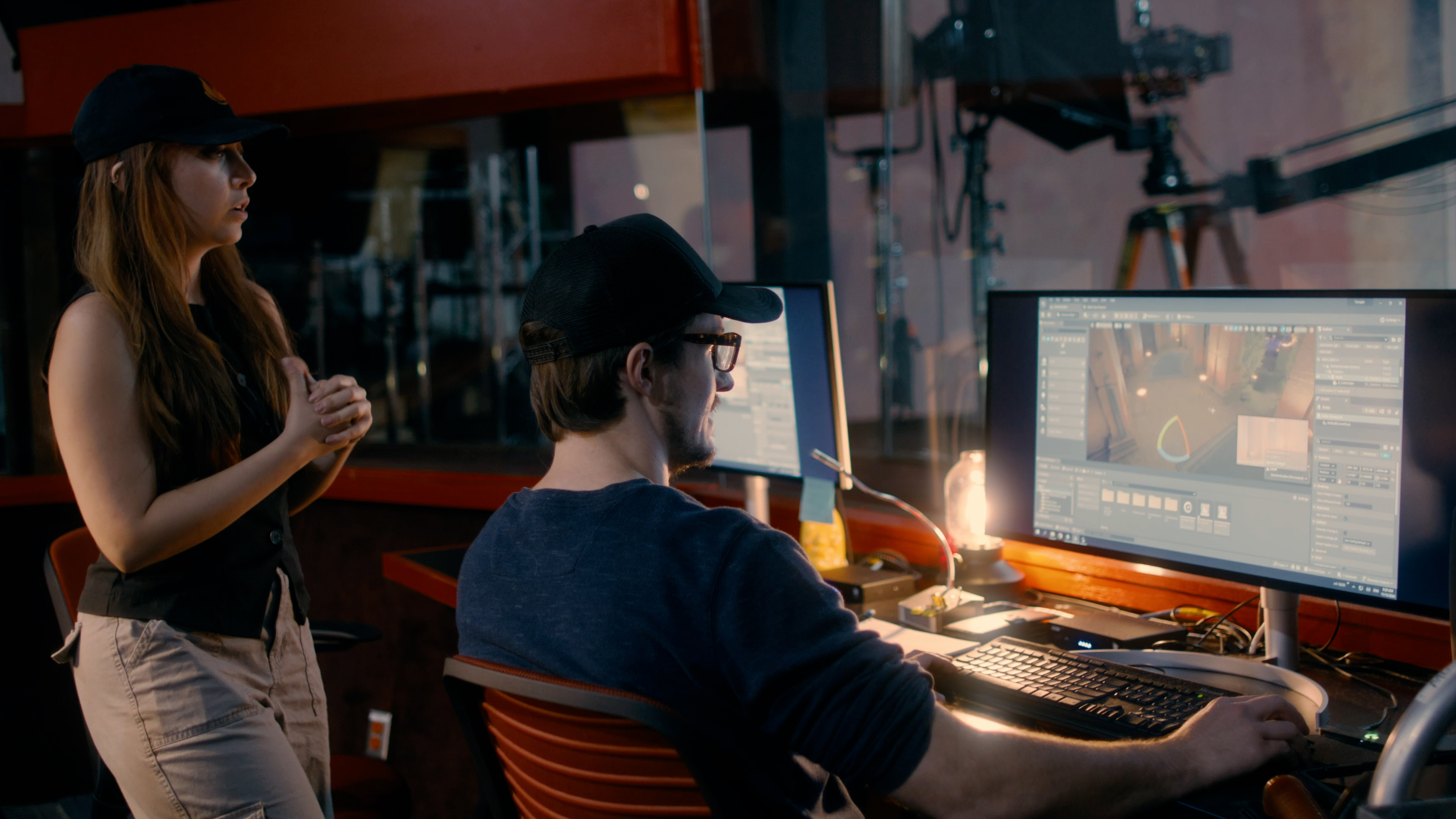
“The students just have such a light in their eyes when they see what this technology can do, and it almost unlocks something in their mind in a way that they're now thinking they can tell stories that are outside of the scope of what they could do before, which is very exciting.” - LB Bunch, Director of Torchlight Forge.
The Results
Students across disciplines, from directing and cinematography to production design and VFX, are now gaining first-hand experience in real-time In-Camera VFX production. They’re learning to think critically and make creative decisions earlier in the process. Virtual production is no longer seen as an add-on; it’s an integrated part of how stories are developed and executed at FSU.
For many students, the transition to working on the LED stage has changed how they think about filmmaking. They’ve described the experience as immersive, challenging, and transformative, highlighting how virtual production pushed them to be more intentional with planning, lighting, and camera movement. Actors benefit too, stepping into interactive environments that elevate performance and eliminate the need for imagination against a green screen.
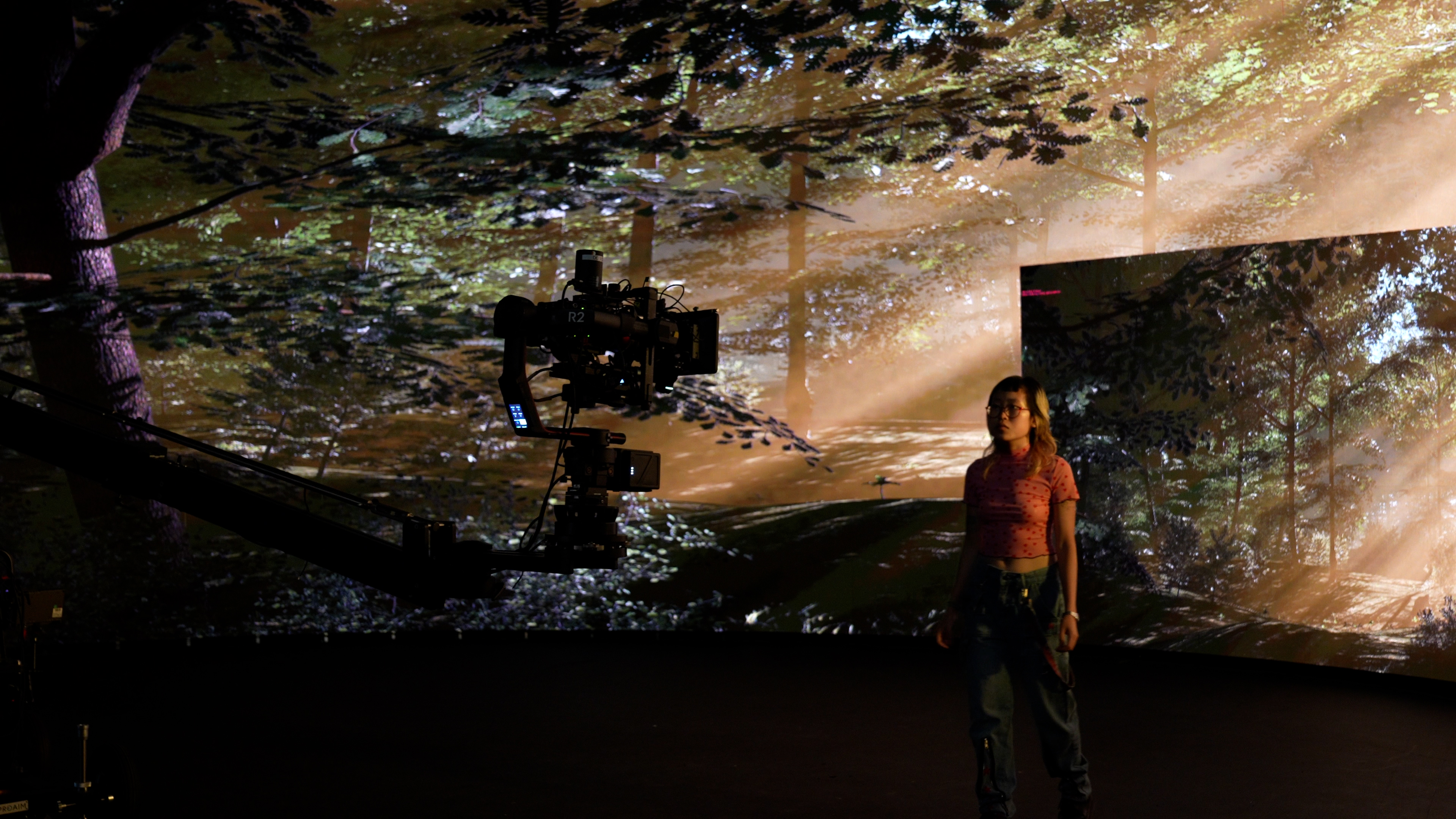
Faculty have noted that the system has brought departments closer together. Virtual production requires collaboration, and students are learning how to work across disciplines - from previs to playback to final pixel. The educational environment encourages experimentation while reinforcing professional workflows, giving students a space to try, fail, and improve within a structure that mirrors the industry.
Disguise’s platform hasn’t just expanded what’s possible on FSU’s stage - it’s given students a way to explore big ideas without compromise. And for a program that’s focused on preparing the next generation of storytellers, that’s what matters most.
As soon as students graduate from FSU and move out into the industry, they get to say to whatever their prospective employer/project might be: By the way, I've worked on a volume. I have familiarity with Disguise. I’ve worked with all the elements of the volume. It can't help but give them an edge.
Assistant Dean of Torchlight Forge
This fall, we’re kicking off a new education series for students and educators, beginning with a virtual session focused on turning creative skills into production careers.
Sign up below to stay up to date on the latest!
Register your interest